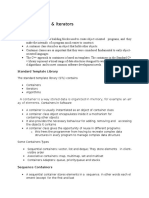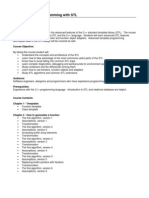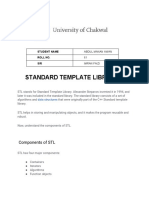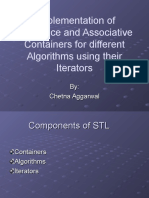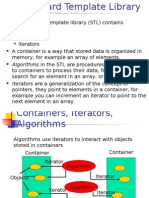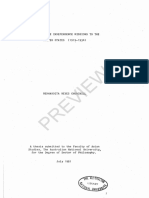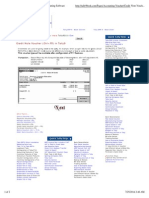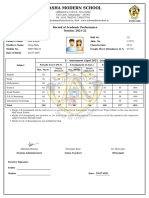0% found this document useful (0 votes)
12 views3 pages1 - Introduction To STL, STL Components
The Standard Template Library (STL) is a C++ library that provides template classes for common data structures and algorithms, including containers, iterators, and functions. It consists of four main components: algorithms, containers, functions, and iterators, with various types of containers such as sequence, associative, and unordered associative containers. A working knowledge of template classes is essential for effectively utilizing STL's features.
Uploaded by
aniketbhosale3747Copyright
© © All Rights Reserved
We take content rights seriously. If you suspect this is your content, claim it here.
Available Formats
Download as DOCX, PDF, TXT or read online on Scribd
0% found this document useful (0 votes)
12 views3 pages1 - Introduction To STL, STL Components
The Standard Template Library (STL) is a C++ library that provides template classes for common data structures and algorithms, including containers, iterators, and functions. It consists of four main components: algorithms, containers, functions, and iterators, with various types of containers such as sequence, associative, and unordered associative containers. A working knowledge of template classes is essential for effectively utilizing STL's features.
Uploaded by
aniketbhosale3747Copyright
© © All Rights Reserved
We take content rights seriously. If you suspect this is your content, claim it here.
Available Formats
Download as DOCX, PDF, TXT or read online on Scribd
/ 3



